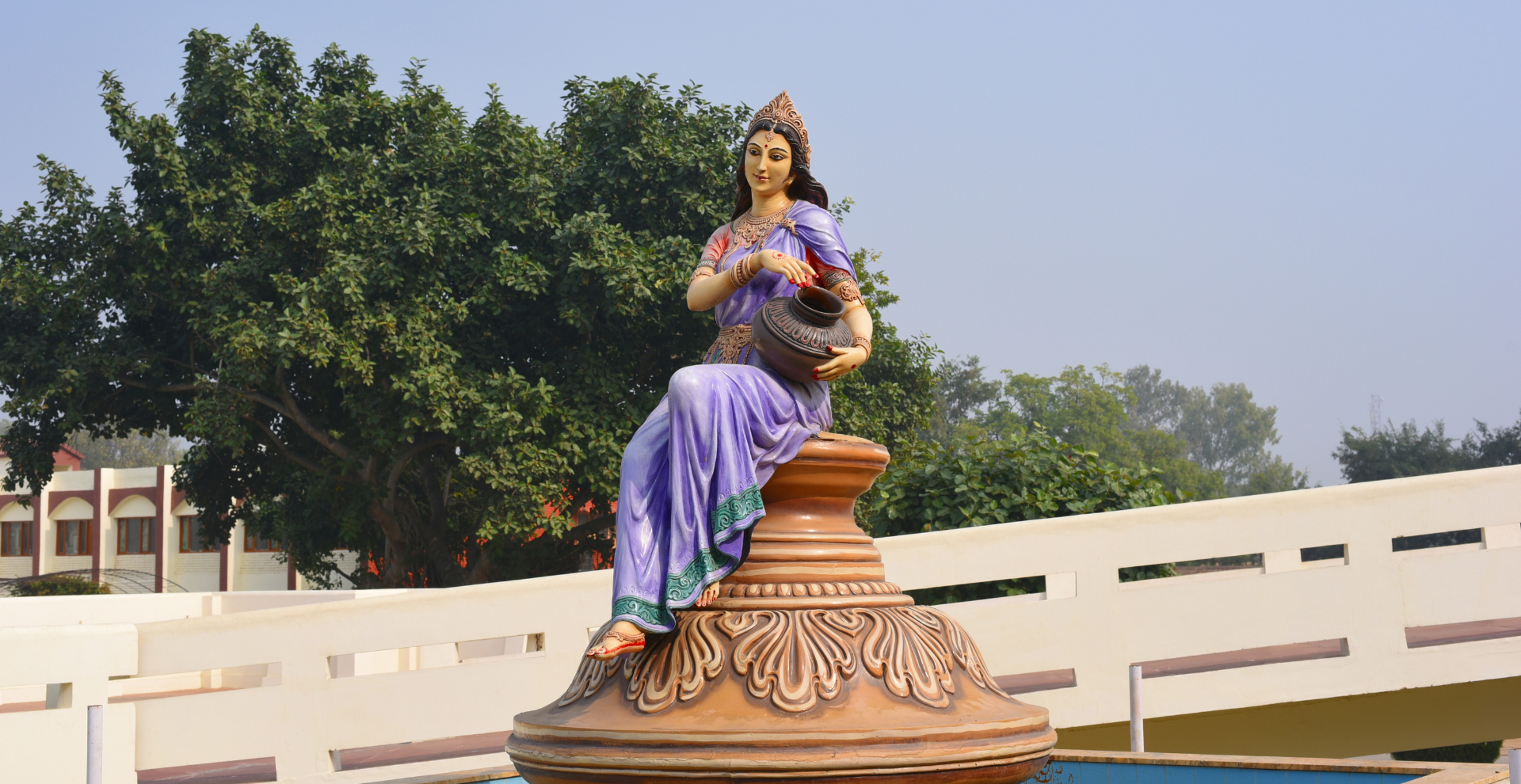Maharaja Agrasen, a legendary ruler known for his wisdom and progressive thinking, founded the city of Agroha over 5,000 years ago. His vision for Agroha was not just to establish a kingdom, but to create a society that embodied equality, prosperity, and unity. The story of Agroha’s foundation is deeply rooted in Maharaja Agrasen’s ideals, which continue to inspire people today.
A Visionary King with a Dream
Maharaja Agrasen was born into the Suryavanshi lineage and ruled the kingdom of Pratapnagar. Despite his prosperous reign, Maharaja Agrasen grew disillusioned with the social inequalities and divisive caste system prevalent in his time. He envisioned a kingdom where every individual, regardless of their background, could live with dignity and have equal opportunities to prosper.
With this vision in mind, he set out on a journey to find a place where he could build such a society. After traveling across many lands, Maharaja Agrasen found a fertile land situated in the northwestern part of India, which is now modern-day Haryana. It was here that he decided to lay the foundation of Agroha, a city that would become a symbol of equality and community welfare.
Agroha: A City Built on Equality and Brotherhood
What set Agroha apart from other kingdoms of that era was its emphasis on collective growth and support. Maharaja Agrasen introduced a unique system of governance based on equality and brotherhood. One of the most notable customs he established was the rule that any new family settling in Agroha would be given one brick and one coin by each existing family.
The brick would help the newcomers build their homes, while the coin would give them a financial start. This custom ensured that every family, regardless of their wealth, would have the means to start their life in Agroha without feeling indebted or inferior to anyone else. This principle of shared resources and collective growth fostered a sense of unity and belonging among the citizens.
Agroha’s economy flourished under this system of mutual support. The city became a major center for trade and commerce, attracting merchants from far and wide. Maharaja Agrasen’s policies of fairness, honesty, and shared prosperity made Agroha an example of ethical governance and community welfare.
Maharaja Agrasen’s Stand Against Animal Sacrifice
Maharaja Agrasen’s compassion wasn’t limited to humans; he was also a strong advocate for animal welfare. It is said that during a yagna (a Vedic ritual), he was disturbed by the practice of animal sacrifice. Believing that all living beings deserved kindness, he made a firm decision to abandon violence and sacrifice in any form. Maharaja Agrasen embraced the principles of ahimsa (non-violence) and advocated vegetarianism, which became a defining feature of Agroha’s culture.
A Legacy of Prosperity and Equality
Maharaja Agrasen’s foundation of Agroha wasn’t just the creation of a new city; it was the birth of a new way of life. Agroha became a kingdom where people lived in harmony, supported each other, and thrived together. The values of equality, compassion, and unity that Maharaja Agrasen instilled in his people ensured that Agroha prospered for generations.
Today, Agroha is remembered as a symbol of Maharaja Agrasen’s visionary leadership. His legacy lives on in the form of the Vaishya community, which continues to uphold his ideals of fairness, unity, and community welfare. The story of Agroha’s foundation is a timeless reminder of how one ruler’s dream can shape a society for the better, laying the groundwork for generations of prosperity and peace.
